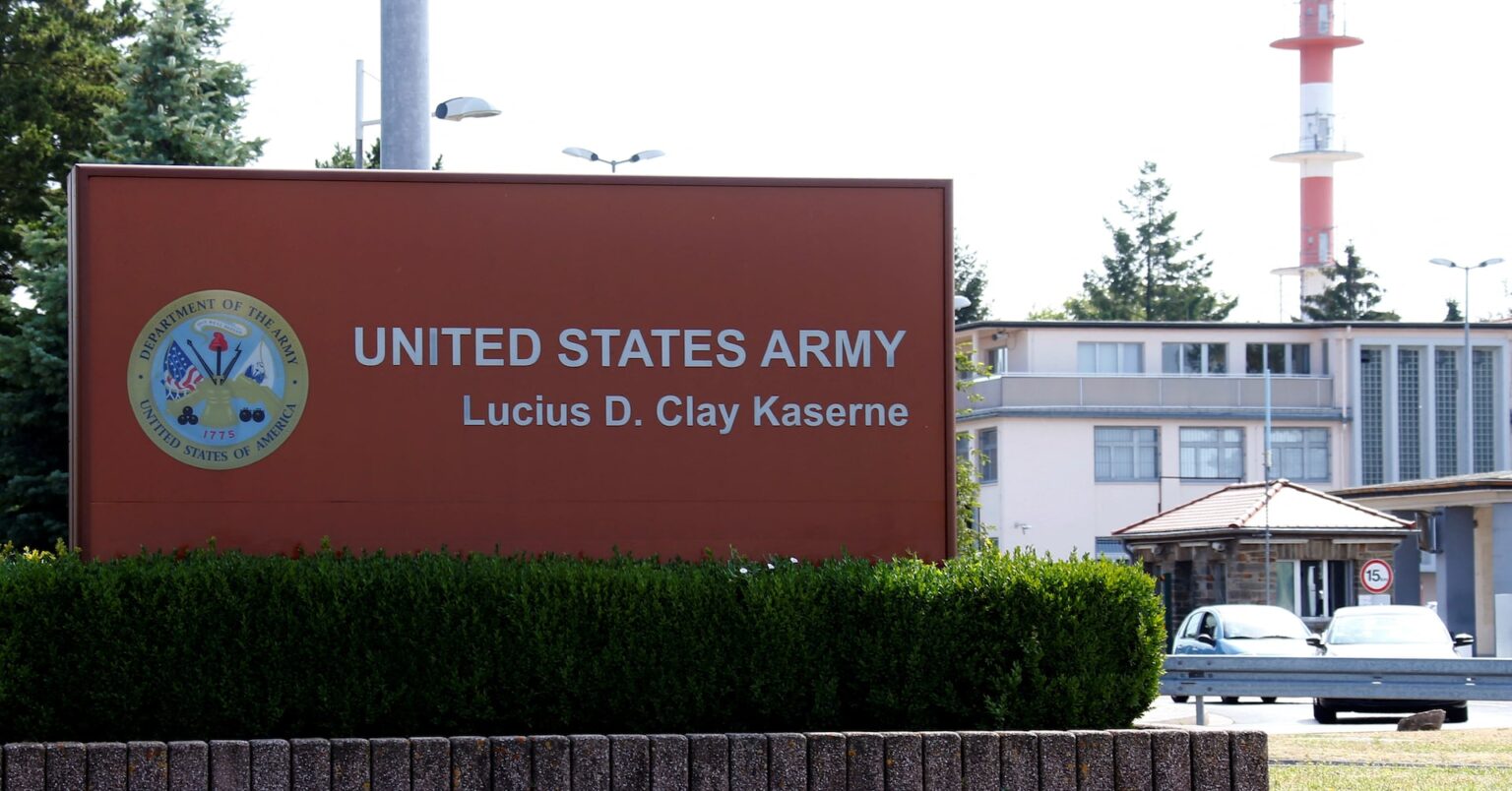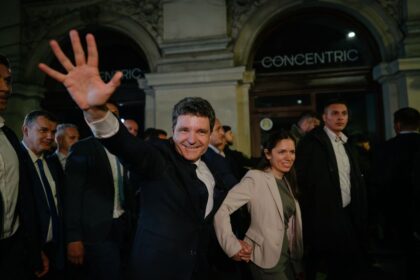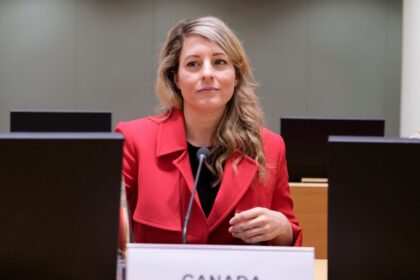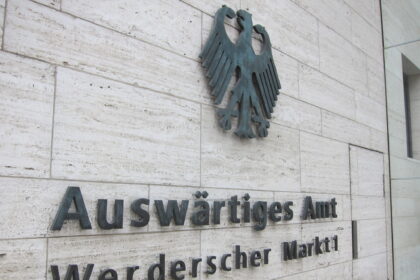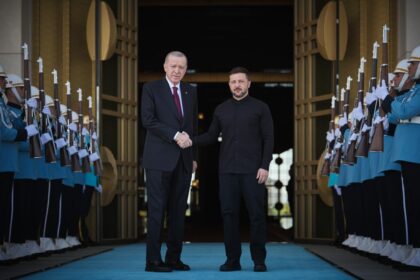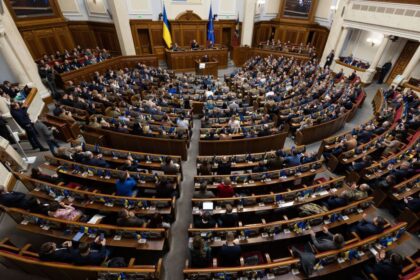**US Military Base in Germany Coordinates Aid to Ukraine**
In the heart of Wiesbaden, Germany, a US military base is playing a crucial role in coordinating aid to Ukraine. The Clay Barracks, as it’s known, has been a hub for military assistance since 2022 when Russia invaded Ukraine.
**A New Era of Military Aid**
Six months ago, NATO set up a command center at the base to coordinate military aid for Ukraine. Today, that aid is evolving, with a focus on bolstering Kyiv’s defense industry. Major General Maik Keller, deputy commander of NATO’s Security Assistance and Training for Ukraine (NSATU), said that Ukraine has shown creativity and innovation in its manufacturing processes.
**Praising Ukrainian Ingenuity**
Keller praised Ukraine’s ability to produce drones at an impressive speed. “Defense procurement is not a one-way street,” he said. “Looking at drones, there is certainly a lot that we might want to buy from Ukraine.” Admiral Keith Blount, NATO’s Deputy Supreme Allied Commander Europe, also praised Ukrainian innovation, saying that Western allies can learn a great deal from Kyiv.
**Needs Are Pressing**
Despite the progress made in drone production, Ukraine still has pressing needs. Keller listed air defense systems, ammunition, and anti-tank mines as top priorities for the country to hold territory without tying down too many troops in the war with Russia.
**A New Era of Cooperation**
The US military base in Germany is not only coordinating aid but also fostering cooperation among Western allies. Keller said that companies producing arms for Ukraine will be needed by NATO members to increase their own weapons stocks. This cooperation is expected to continue, even if some Western countries struggle to meet Kyiv’s needs.
**A Stable Future?**
Despite concerns about the US commitment to Ukraine under President Trump, Keller expressed confidence in NSATU’s ability to sustain Ukraine’s resistance. “Yes,” he said when asked whether the organization could do so. However, he cautioned that Europe and Canada would face significant challenges in replacing some critical capabilities, such as satellite surveillance.
Read More @ www.reuters.com




